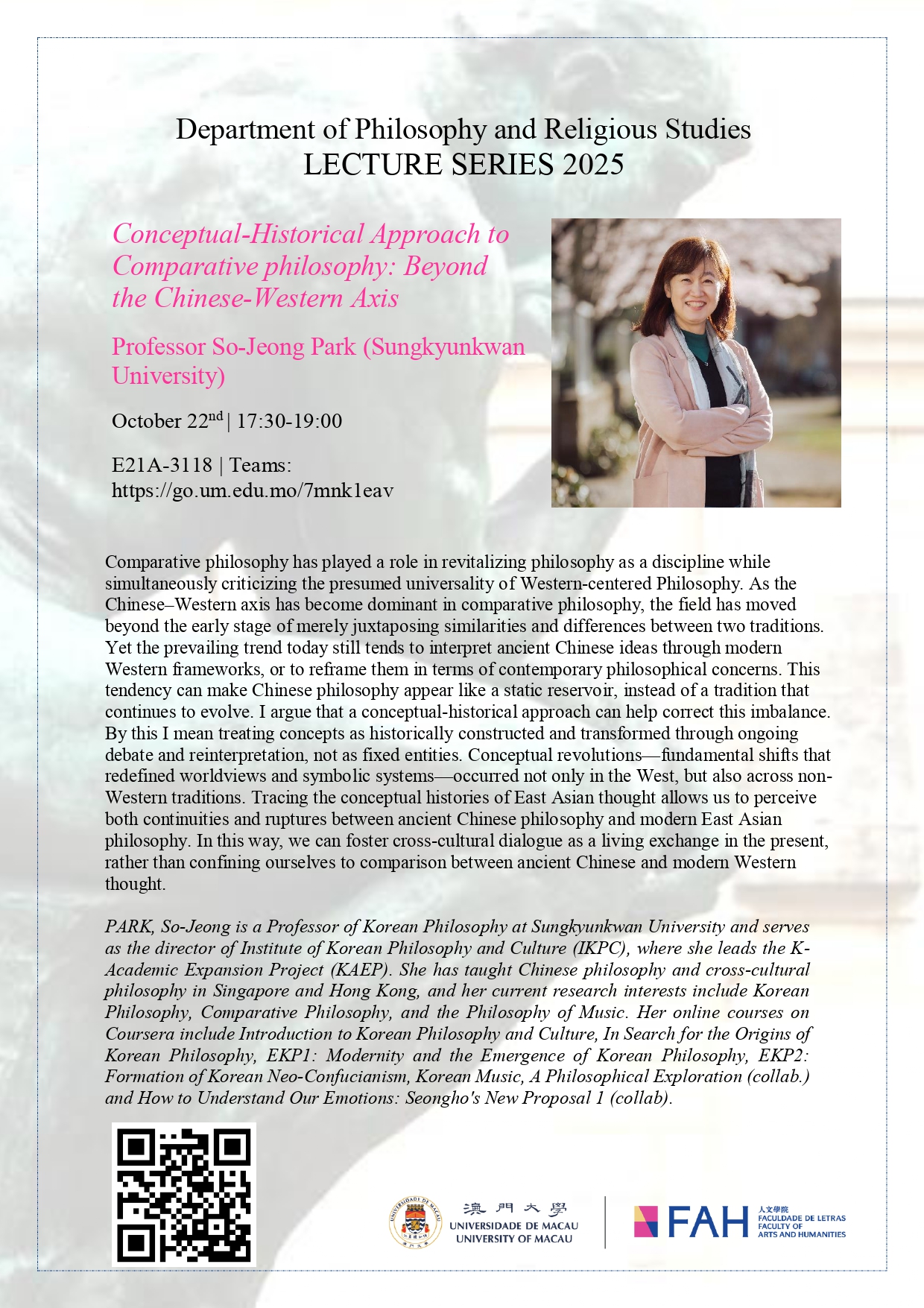

FAH/DPHIL Lecture Series – “Conceptual-Historical Approach to Comparative philosophy: Beyond the Chinese-Western Axis” by Prof. So-Jeong Park, Sungkyunkwan University, Korea
2025-10-22 @ 5:30 pm ~ 7:00 pm
Microsoft Teams: https://go.um.edu.mo/7mnk1eav
Abstract
Comparative philosophy has played a role in revitalizing philosophy as a discipline while simultaneously criticizing the presumed universality of Western-centered Philosophy. As the Chinese–Western axis has become dominant in comparative philosophy, the field has moved beyond the early stage of merely juxtaposing similarities and differences between two traditions. Yet the prevailing trend today still tends to interpret ancient Chinese ideas through modern Western frameworks, or to reframe them in terms of contemporary philosophical concerns. This tendency can make Chinese philosophy appear like a static reservoir, instead of a tradition that continues to evolve. I argue that a conceptual-historical approach can help correct this imbalance. By this I mean treating concepts as historically constructed and transformed through ongoing debate and reinterpretation, not as fixed entities. Conceptual revolutions—fundamental shifts that redefined worldviews and symbolic systems—occurred not only in the West, but also across non-Western traditions. Tracing the conceptual histories of East Asian thought allows us to perceive both continuities and ruptures between ancient Chinese philosophy and modern East Asian philosophy. In this way, we can foster cross-cultural dialogue as a living exchange in the present, rather than confining ourselves to comparison between ancient Chinese and modern Western thought.
Bio
PARK, So-Jeong is a Professor of Korean Philosophy at Sungkyunkwan University and serves as the director of Institute of Korean Philosophy and Culture (IKPC), where she leads the K-Academic Expansion Project (KAEP). She has taught Chinese philosophy and cross-cultural philosophy in Singapore and Hong Kong, and her current research interests include Korean Philosophy, Comparative Philosophy, and the Philosophy of Music. Her online courses on Coursera include Introduction to Korean Philosophy and Culture, In Search for the Origins of Korean Philosophy, EKP1: Modernity and the Emergence of Korean Philosophy, EKP2: Formation of Korean Neo-Confucianism, Korean Music, A Philosophical Exploration (collab.) and How to Understand Our Emotions: Seongho’s New Proposal 1 (collab).

